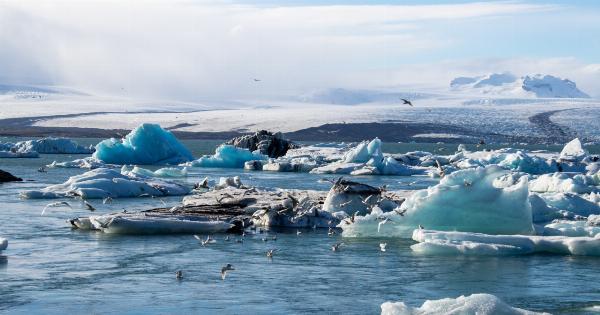Global warming is an important and complex issue that is affecting the health, survival, and well-being of humans.
It has been found that the rise in temperature has severe consequences on our physical and mental health, and also affects the natural environment we live in. There are a number of adverse health complications associated with global warming that could lead to mortality if not addressed timely.
Heat-Related Illnesses
Heat waves are becoming more frequent and intense due to global warming. The high temperatures put significant pressure on the human body and lead to heat-related illnesses such as heat exhaustion, heat cramps, and heat stroke.
These conditions are not only caused by heat waves but also by exposure to sun on hot days, especially in combination with high humidity. Experts warn that outdoor workers, people with medical conditions, and the elderly are at higher risk for developing heat-related illnesses.
Air Pollution and Respiratory Diseases
The rise in temperature is causing poor air quality due to increased pollution that put human health at risk. The high level of air contaminants results in respiratory and cardiovascular diseases that may lead to death.
Studies suggest that global warming is contributing to more significant pollen seasons, which leads to an increased number of allergic reactions and asthma attacks.
Infectious Diseases
In addition to respiratory diseases, global warming also leads to the spread of infectious diseases that put public health at risk.
The increase in temperature, precipitation, and humidity make mosquitoes and other disease carriers thrive and propagate diseases such as malaria, Lyme disease, and dengue fever. Global warming also leads to changes in migratory patterns of animals that harbor diseases and increase the risk of spreading new infections to humans.
Mental Health and Stress
Global warming may not only cause physical health complications but has a considerable impact on mental health as well.
People who experience extreme weather events or have to live in polluted environments may be at increased risk of developing stress, anxiety, and other mental health problems. This creates a new dimension to the crisis of global warming that needs to be addressed by psychological intervention and support.
Water and Food Scarcity
Global warming also affects the global food and water supply, which could lead to malnutrition and dehydration. The increase in temperature leads to drought and decreased water availability that could trigger social conflicts and unrest.
Furthermore, the temperature increases will have an adverse effect on local food production, resulting in food shortages that could ultimately lead to malnutrition and starvation in the most affected areas.
Extreme Weather Events
The temperature rise is causing more frequent and intense extreme weather events that may cause death and destruction. Such events include floods, hurricanes, and wildfires.
These events put people’s lives at risk, destroy homes and fields, and cause an enormous financial burden, creating an economic crisis that could take years to recover. The poor and most vulnerable populations are the most affected by these events.
Conclusion
The issue of global warming is a complex and multifaceted one that requires effective intervention at all levels.
The dire consequences of global warming on human health and well-being demand prompt action from governments, international organizations, and individuals worldwide. Encouragingly, several measures can be taken to mitigate the adverse effects of global warming, including reducing carbon emissions, waste production, and pollution, among others.



























